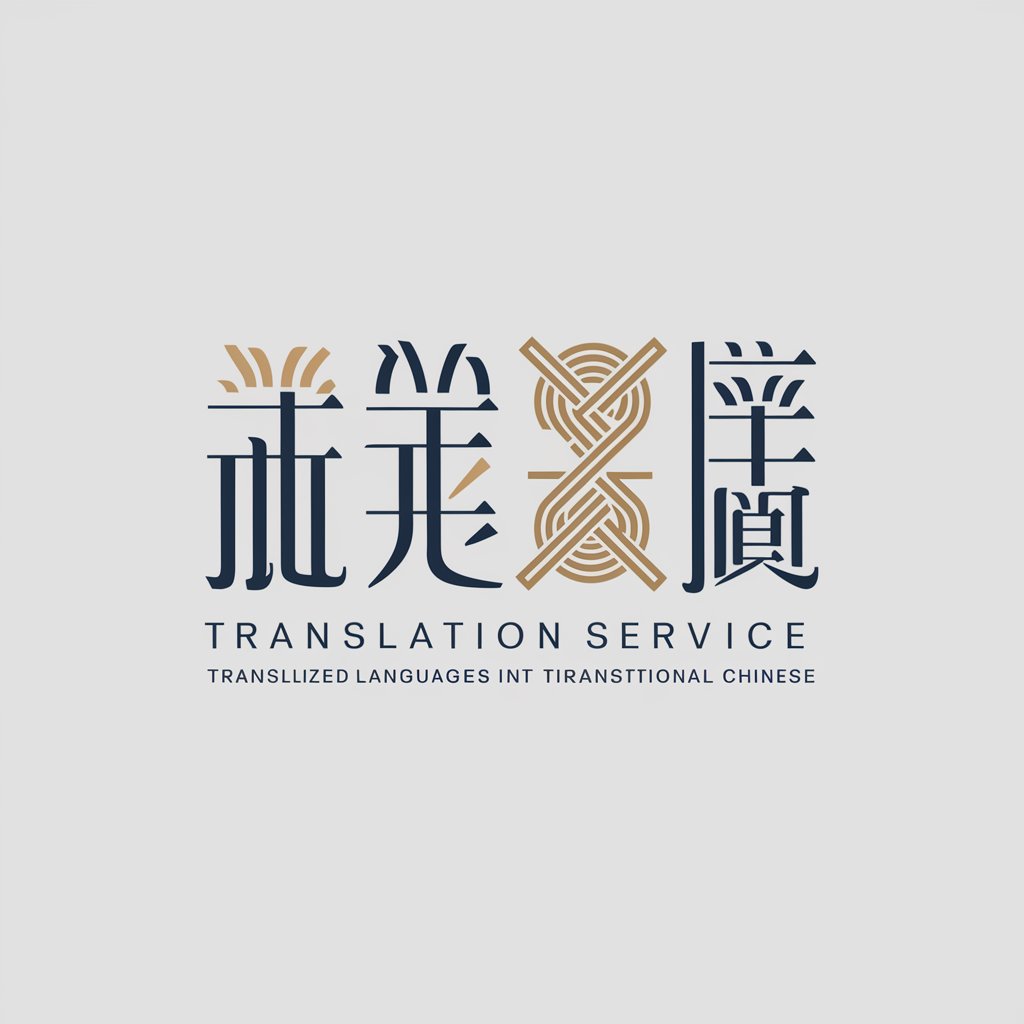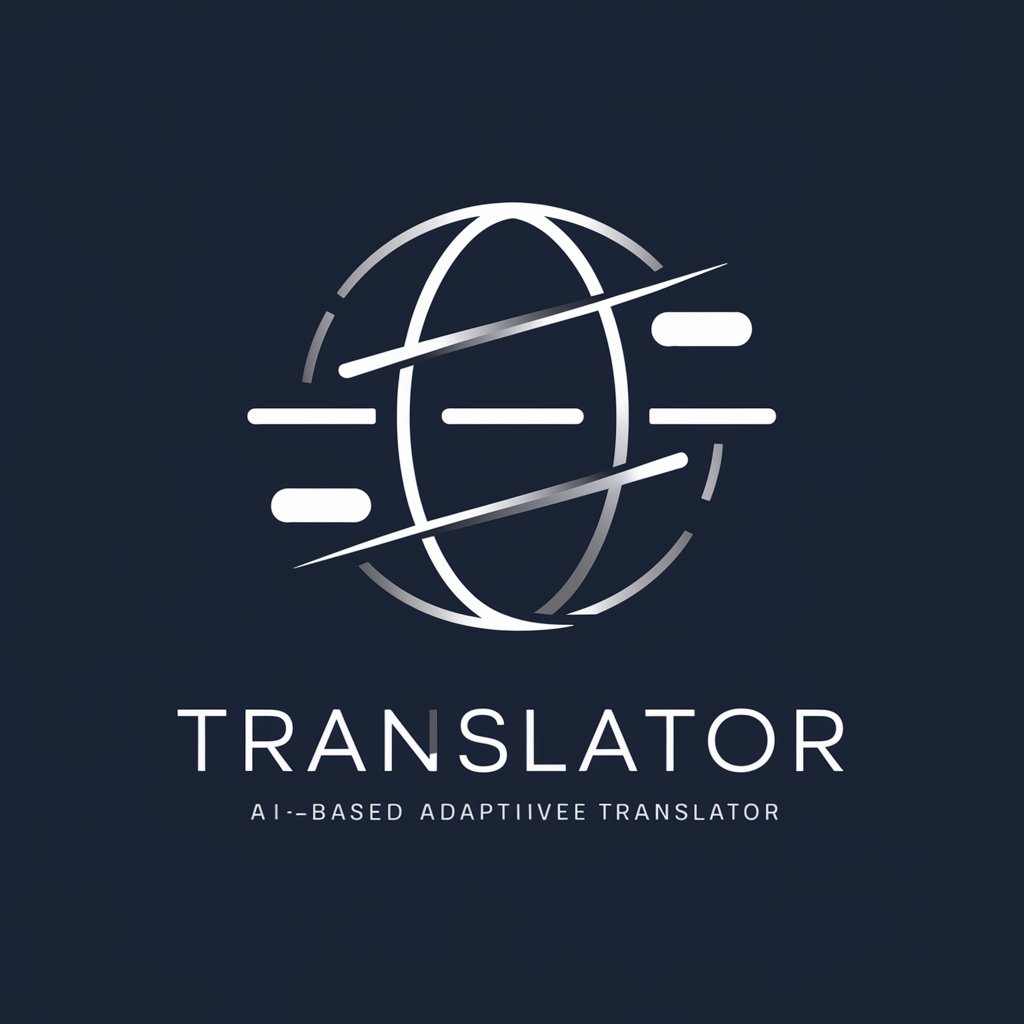6 GPTs for Business Localization Powered by AI for Free of 2026
AI GPTs for Business Localization are advanced artificial intelligence tools designed to automate and enhance various tasks within the realm of business localization. By leveraging Generative Pre-trained Transformers (GPTs), these tools offer tailored solutions for translating and adapting business content and services to fit the cultural, linguistic, and regulatory nuances of specific target markets. They are pivotal in ensuring that businesses can effectively communicate and operate across diverse geographical boundaries, making GPTs indispensable for global market expansion.
Top 5 GPTs for Business Localization are: 翻譯成中文,Translator,Tradutor Qualquer Língua → Português de Portugal,Instant Native Translator (English-Turkish),Globalize GPT
翻譯成中文
AI-powered Precision in Chinese Translation

Translator
Bridging Languages with AI Precision

Tradutor Qualquer Língua → Português de Portugal
AI-Powered Portuguese Translations

Instant Native Translator (English-Turkish)
Bridging Languages, Connecting Cultures

Globalize GPT
AI-powered translation precision

Key Attributes of AI GPTs for Business Localization
These GPTs stand out for their ability to learn and adapt to different languages and dialects, providing accurate and culturally relevant translations. Beyond translation, they can assist in generating localized marketing content, performing market-specific research, and offering customer support in multiple languages. Special features include advanced language models, real-time adaptation to new data, integration capabilities with existing business tools, and comprehensive technical support for both simple and complex localization tasks.
Who Benefits from Business Localization GPTs
AI GPTs for Business Localization are invaluable for a wide range of users, from localization novices to seasoned professionals. They serve businesses looking to expand into new markets, developers creating multilingual applications, and localization teams needing efficient tools for content adaptation. These GPTs are designed to be accessible to users without programming knowledge, while also offering extensive customization options for tech-savvy individuals.
Try Our other AI GPTs tools for Free
Therapeutic Artistry
Discover how AI GPTs for Therapeutic Artistry are revolutionizing mental health through creative tech-driven solutions that enhance therapy with personalized, accessible, and innovative approaches.
Funding Strategies
Discover how AI GPTs for Funding Strategies can transform your financial planning with customized, intelligent solutions for investment, grants, and more.
Growth Planning
Discover how AI GPTs for Growth Planning can transform your approach to expansion and efficiency. These advanced tools offer personalized strategies, predictive insights, and data-driven recommendations to fuel your growth.
Operational Management
Discover how AI GPTs are transforming Operational Management with adaptable, efficient, and intelligent solutions tailored to enhance business operations.
Storyboard Development
Discover how AI GPTs revolutionize storyboard development, offering creative, adaptable tools for novices and professionals alike. Enhance your storytelling with AI-driven insights and visualizations.
Bedtime Stories
Discover the magic of AI GPTs for Bedtime Stories, where technology meets creativity to generate personalized, engaging tales for listeners of all ages. Enhance your bedtime routine with unique narratives designed to spark imagination and promote relaxation.
Expanding Horizons with GPTs in Localization
AI GPTs are revolutionizing business localization by offering scalable, efficient solutions that can be customized to any sector's needs. Their user-friendly interfaces simplify the localization process, while their ability to integrate with existing systems ensures businesses can rapidly adapt to new markets without significant overhead. These insights highlight the transformative potential of GPTs in global business strategies.
Frequently Asked Questions
What exactly are AI GPTs for Business Localization?
AI GPTs for Business Localization are AI-driven tools that help businesses adapt their operations, content, and services to meet the specific linguistic and cultural expectations of different global markets.
How do these AI tools support business localization?
They support business localization by offering services like automated translation, cultural adaptation of content, market-specific research, and multilingual customer support.
Can non-technical users leverage these GPTs effectively?
Yes, these GPTs are designed with user-friendly interfaces that allow non-technical users to easily access and utilize their localization capabilities.
What customization options are available for developers?
Developers can access APIs and SDKs for custom integration, utilize advanced programming options for bespoke solutions, and leverage machine learning models for tailored localization strategies.
Are there specific industries that benefit more from these tools?
While beneficial across various sectors, industries with a strong global presence such as e-commerce, software, entertainment, and tourism may find these tools particularly advantageous.
How do GPTs ensure the cultural relevance of translations?
GPTs utilize advanced AI models that are trained on vast datasets, including culturally specific content, to ensure translations are not only linguistically accurate but also culturally relevant.
Can these tools integrate with existing business systems?
Yes, many GPTs for Business Localization are designed to seamlessly integrate with existing business systems and workflows, enhancing efficiency without disrupting current operations.
What measures are in place to ensure the privacy and security of data?
These tools implement stringent data security protocols, including encryption and GDPR compliance, to protect business information and customer data during the localization process.